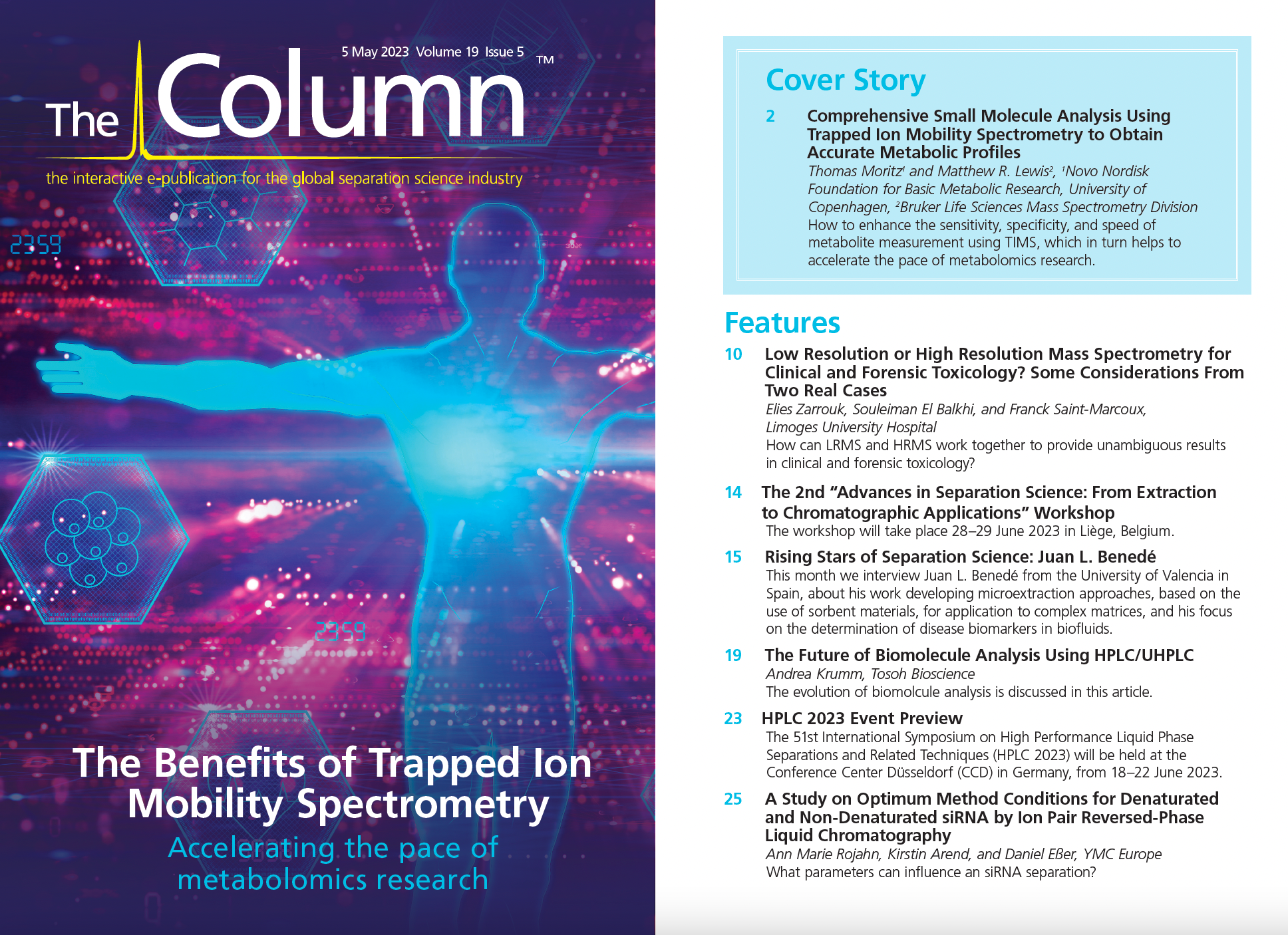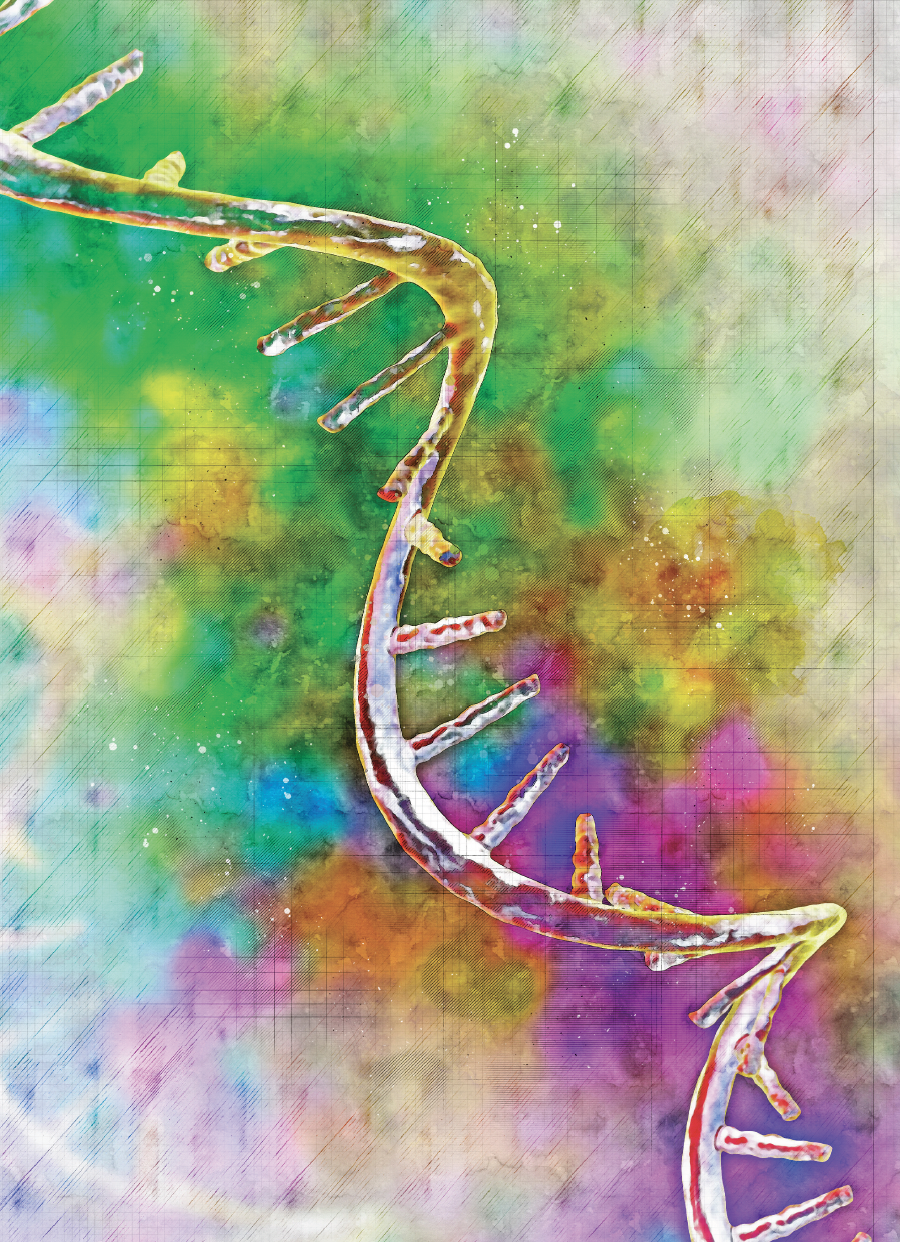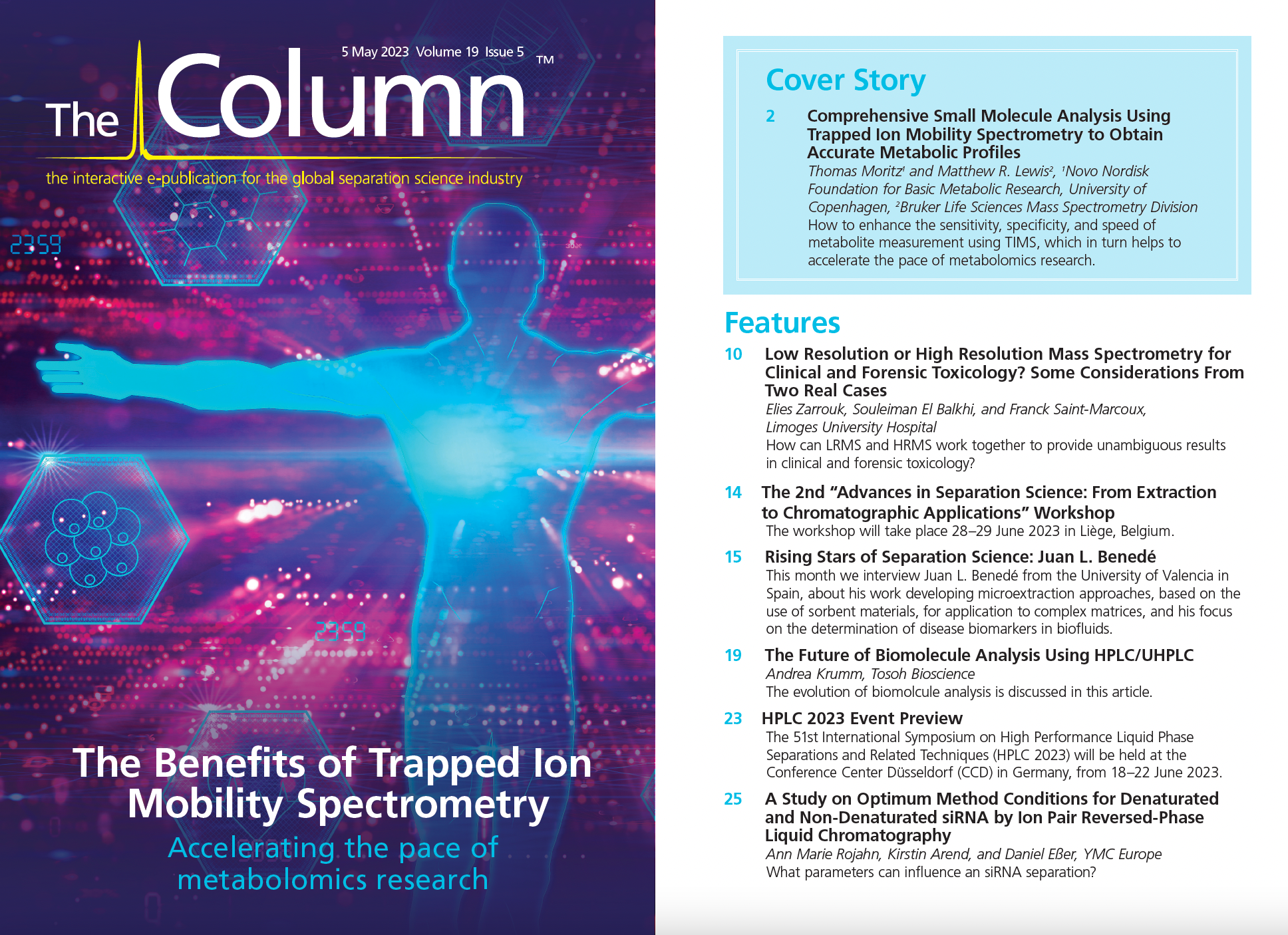Selective Extraction of Levoglucosan and Its Isomers from Complex Matrices for Analysis
A team of researchers from the University of Barcelona has developed a new method for the selective extraction of monosaccharide anhydrides (MAs) from sediment samples, which is crucial for their analysis (1).
MAs, particularly levoglucosan, are often used as biomarkers to determine the sources and evolution of organic matter in sediments. However, their analysis is complicated because of the lack of reliable technologies that can selectively extract these compounds from complex matrices.
The new method takes advantage of the affinity between MAs and immobilized Na+ ions related to ligand-exchange processes (LE-SPE). By using nonaqueous mobile phases such as DCM–MeOH mixtures, the capacity factor of LE-SPE columns is enhanced. The researchers have used this method to selectively extract MAs from lacustrine, coastal, and deep-sea oceanic sediment samples.
The analytical procedure produced extracts with low ion suppression effects, resulting in ideal conditions for MAs quantification with liquid chromatography–electrospray ionization tandem mass spectrometry (LC–ESI-MS/MS) systems, regardless of the sedimentary matrix and MAs concentration. The method yielded repeatable concentration values and an instrumental dynamic range of 10–10,000 pg injected.
The combination of LE-SPE and LC–ESI-MS/MS has the potential to produce sensitive and reliable technologies to analyze saccharides and amino acids in environmental and biological samples.
The team believes that their method will be useful for studies that aim to understand the evolution of organic matter in sedimentary environments. The method will also be valuable in the analysis of other water-soluble non-ionic compounds in complex matrices.
Reference
(1) Daytian, N.; Penalva, N.; Rosell-Melé, A.; Villanueva, J. Selective extraction of levoglucosan and its isomers from complex matrices using ligand exchange-solid phase extraction for analysis by liquid chromatography-electrospray ionization-tandem mass spectrometry. J. Chromatogr. A 2023, 1695, 463935. DOI: 10.1016/j.chroma.2023.463935

New Method Explored for the Detection of CECs in Crops Irrigated with Contaminated Water
April 30th 2025This new study presents a validated QuEChERS–LC-MS/MS method for detecting eight persistent, mobile, and toxic substances in escarole, tomatoes, and tomato leaves irrigated with contaminated water.
University of Tasmania Researchers Explore Haloacetic Acid Determiniation in Water with capLC–MS
April 29th 2025Haloacetic acid detection has become important when analyzing drinking and swimming pool water. University of Tasmania researchers have begun applying capillary liquid chromatography as a means of detecting these substances.
Prioritizing Non-Target Screening in LC–HRMS Environmental Sample Analysis
April 28th 2025When analyzing samples using liquid chromatography–high-resolution mass spectrometry, there are various ways the processes can be improved. Researchers created new methods for prioritizing these strategies.

.png&w=3840&q=75)

.png&w=3840&q=75)



.png&w=3840&q=75)



.png&w=3840&q=75)












